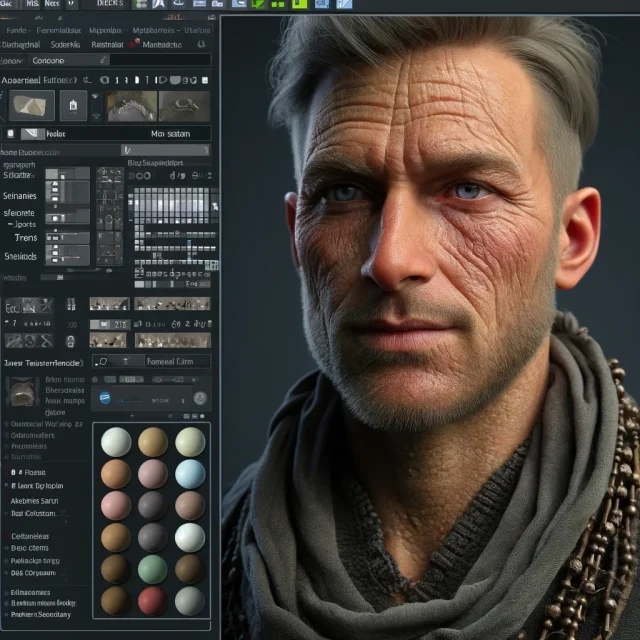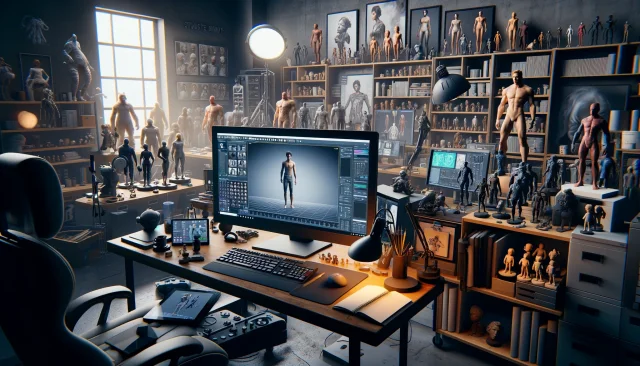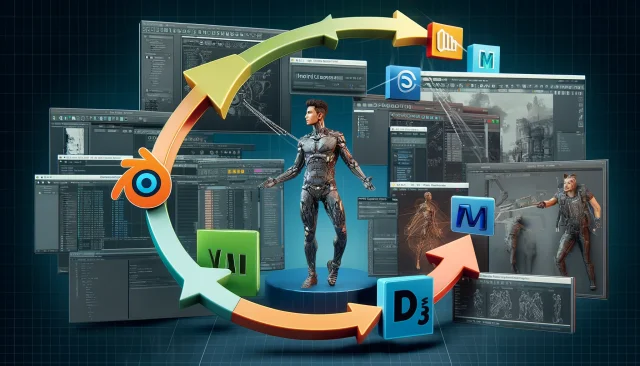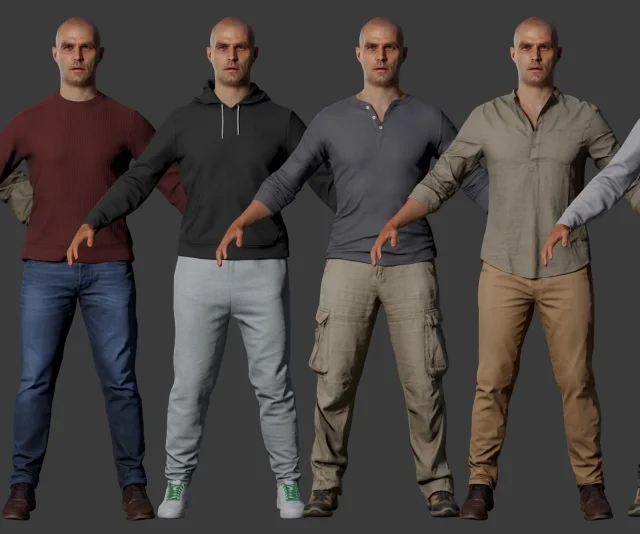How to work in 3D without becoming emotionally exhausted

It may seem that burnout is only possible when you do the same thing for too long and too meticulously. But burnout can happen at any stage of mastering a professional direction.
For example, at the beginning it can be caused by a lot of new information and tools, and later it can be caused by routine tasks.
Read on and we'll look at how to work with 3D content in a way that doesn't burn you out. We'll give you some important tips.
And yes, if you like to sit in Poser and Daz Studio, you can find a lot of material on our site that will not only diversify your workflow, but also make it much easier. These include various bundles, characters, poses and other add-ons. All this is free and without registration.
First, analyse the situation
Burnout is a feeling of mental, physical and emotional exhaustion caused by prolonged stress.
The best way to combat this feeling is through self-awareness.
A personal diary can help you understand yourself.
Another good way is to practise analysing feelings. For example, you can set aside 20 minutes a day to sort out your mental, physical and emotional state.
Don't forget to write down all your observations - we mentioned keeping a personal diary for a reason. And at the end of each month, review your previous entries. This will give you a chance to notice similar patterns in your condition.
If you find that you're physically exhausted, adjust your sleep schedule, try to get more exercise and review your eating habits. This will definitely help.
Change the programme you're working in
Burnout can be closely linked to seeing the same interface over and over again - every damn day. Changing programs is not a bad solution.
Let's say you started in Blender and have been working in it for more than a year. Isn't it time to switch to something else? Let's say 3ds Max, Zbrush or Houdini.
Of course, you could say that you'd have to learn everything from scratch, but that's not entirely true. The functionality of the programmes is similar in one way or another. Yes, you'll still have to get used to a lot of things, but isn't that the beauty of it?
Give yourself free time
Many of us don't realise how important breaks are. Except that taking breaks is the number one way to deal with burnout.
Taking time away from work helps improve the quality of your work and allows your brain to rest. Go to a museum, take a trip to a neighbouring city or just get a good night's sleep.
You'll see an immediate improvement.
Use bonuses (if there are any)
Bonuses are part of your compensation package and, strangely enough, they can go a long way towards alleviating symptoms of burnout. Despite this, very few people make the most of bonuses.
Find out what is available at your workplace. They may offer more than just discounts on products and services, extra holidays or tuition fees.
You can find out from your line manager or human resources department.
If you are a freelancer working on a stock exchange, the advice still applies. Even there you can find various special offers. For example, professional development courses.
Avoid (or at least greatly reduce) coffee and sweets
Caffeine helps you wake up and work better for a while. Well, that's true. But did you know that it also increases levels of the stress hormone cortisol?
That's right, cortisol.
If you drink coffee throughout the day, you will keep your nervous system on edge, which translates into anxiety and restlessness.
Sugar and chocolate also spike the nervous system, disrupting the natural cycle and preventing you from getting enough rest. All of this contributes to emotional burnout.
Try to cut down on coffee, sugar and other stimulants. Instead, include exercise and outdoor activities in your routine.
Don't forget physical activity
Evolution didn't prepare humans for a sedentary lifestyle, so lack of exercise has a significant impact on health - including mental health.
Physical activity helps to take your mind off things and relieve tension. It also oxygenates the blood and therefore the brain.
We hope you found this article useful. Remember that burnout is only the beginning. You should not let it get to the stage where it becomes a symptom and a full-fledged precursor to something much more serious and terrible.
For example, depression.
Ctrl
Enter
Noticed a misTake
Highlight text and press Ctrl+EnterRelated news:

Advanced Texturing Techniques in DAZ Studio and Poser

Analyzing Trends in Creating 3D Characters for Films and Video Games

Virtual Reality and 3D Characters: Exploring the Possibilities of Creating 3D Characters for VR Projects with DAZ Studio and Poser, and Necessary Adaptations for VR

Utilizing Python for Task Automation in DAZ Studio and Poser

Integration of DAZ Studio and Poser with Other 3D Packages: Discussion of Import and Export Processes and Techniques

How to choose clothes for a character - top tips
Comments (0)
